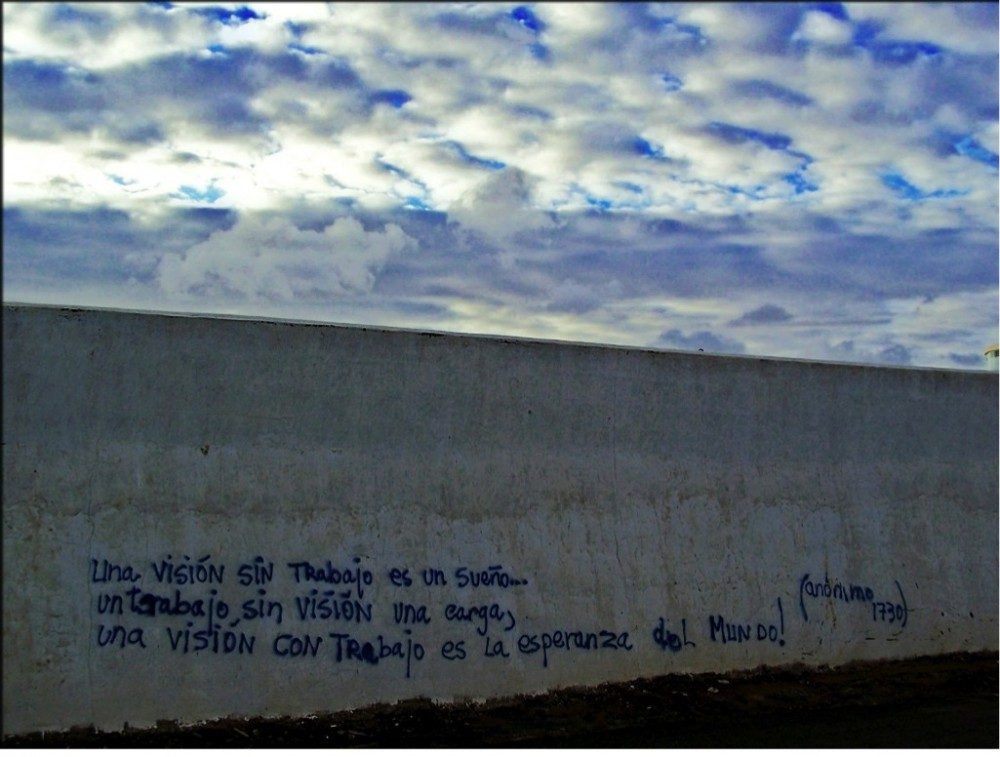New Testament people are a wonderfully unusual bunch. Not perhaps for the way they look. Not for the way they dress or the things they do or say. They are unusual for who they are — for their basic identity and purpose in life. New Testament people are chosen, St. Peter tells us. They are royal; they are holy. New Testament followers of Jesus are “God’s own people in order that [they] may proclaim the mighty acts of [God]” (1 Peter 2:9).
They are missionized.
I do not mean that New Testament people are each and every one a cross-cultural missionary. Not at all. They are not all pastors or church professionals, either. They are businesspeople and fisher-folk. They are medical practitioners, merchants in the marketplace, government employees, and so on — ordinary sorts of people. (Think of Luke, Lydia, Matthew, etc.) Yet in their businesses and occupations, they are a people on a mission. Very few become professional missionaries; they become missionary in their professions.
Recently I was paging through some of our monthly newsletters — from the 1940’s. The newsletter was produced then (as it is now) by our praying members and for our praying members — still mostly college students in the 1940’s. Those early issues read like a blog — but a blog produced on mimeograph.
In October 1943 the newsletter described the purpose of our praying fellowship: “serving the broad vision in the local commission” (KCNL 10/43). It was a purpose in two parts. Identify “the broad vision.” Then serve it “in the local commission.” Away back then, we called the idea “commissioned living.”
It was just the sort of unusual vision that you might expect of a modern-day New Testament people, I thought. And it hasn’t changed much through the years. We aim still at the broad vision of God’s love for all the peoples of the world. We aim to live in and live out the message of his love in Jesus Christ. We aim to share the message, announce the message, enact the message, and demonstrate it faithfully by deeds of mercy and service. And we hope to serve this broad vision, each one of us, in our “local commission.”
A “local commission,” of course, can be almost anything — just like in New Testament times. We might be students. We might be businesspeople. We might even make our living catching fish. Yet in our many professions and occupations we are commissioned, too. We are parts and participants in the mission of God.
A commissioned life is owned and driven by the purposes of God. It is a royal life — in service to the King. It is chosen and holy — set apart for the Kingdom’s purposes. Our Mission Handbook explains: “We believe that God has called all Christians everywhere to involvement in his mission in the world. Each one has a role to play.” Most will discover their role “at home, in their own neighborhoods, and in their regular occupations.” Others “will discover their place of participation in extraordinary service elsewhere in the world.” God will direct us, our Handbook suggests, “to a wide and wonderful variety of participations in his mission of love around the world.”
If you know Jesus, you are missionized, too. Your studies, your profession, your prayers — your entire life and energy — are parts and participants in the mission of God. This is the way with New Testament people. We are made by grace “God’s own people.” We are called by grace to declare his mighty love.
